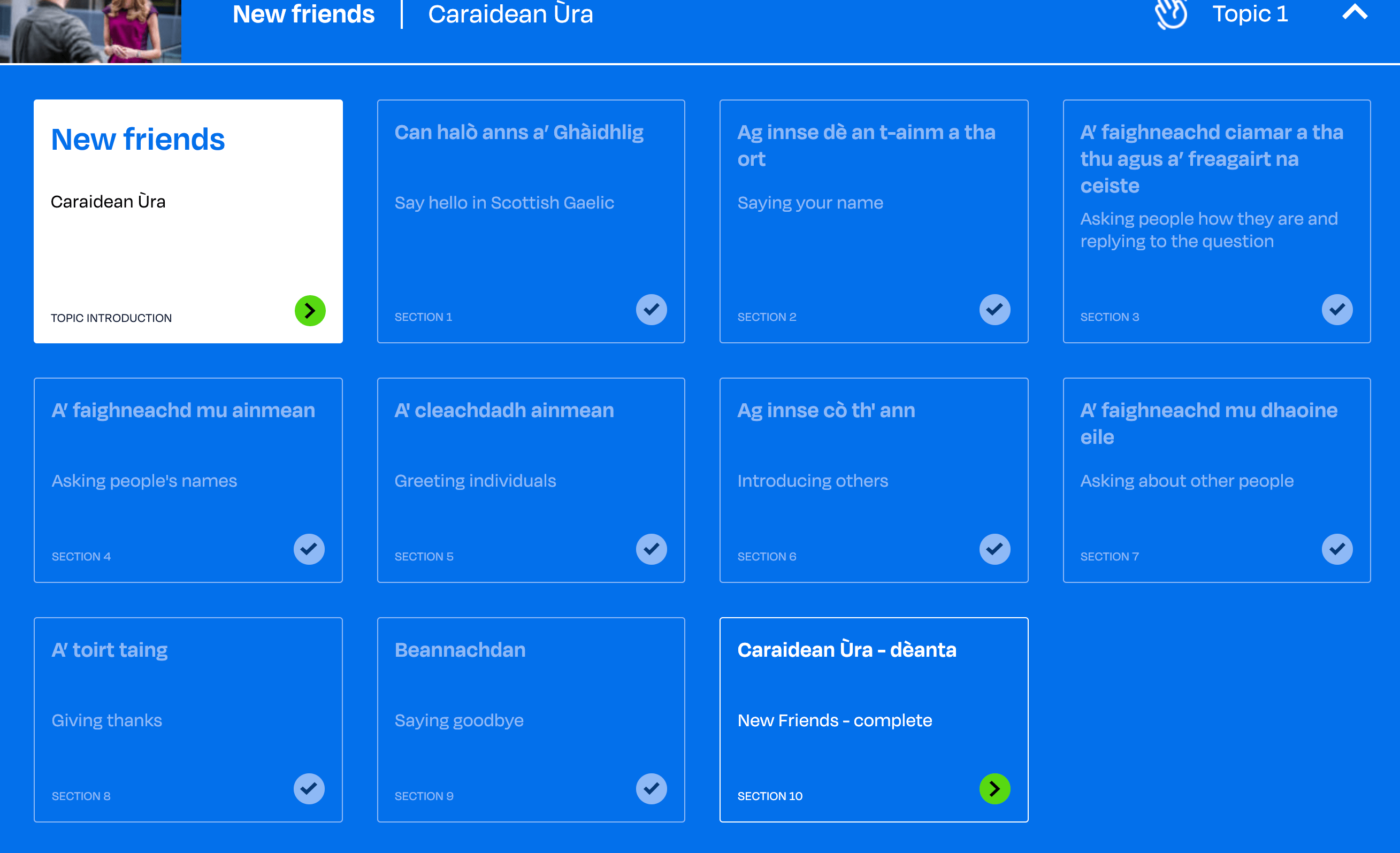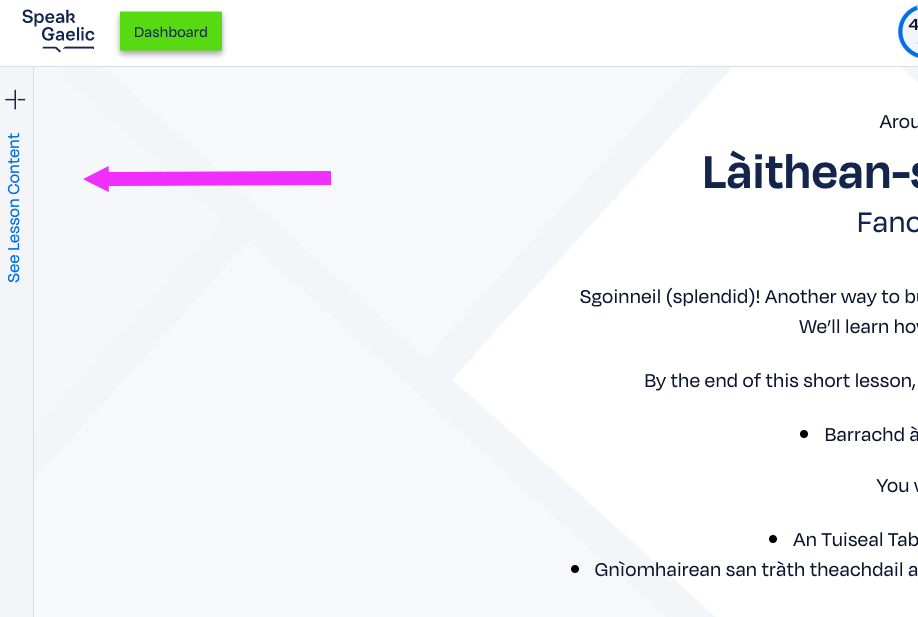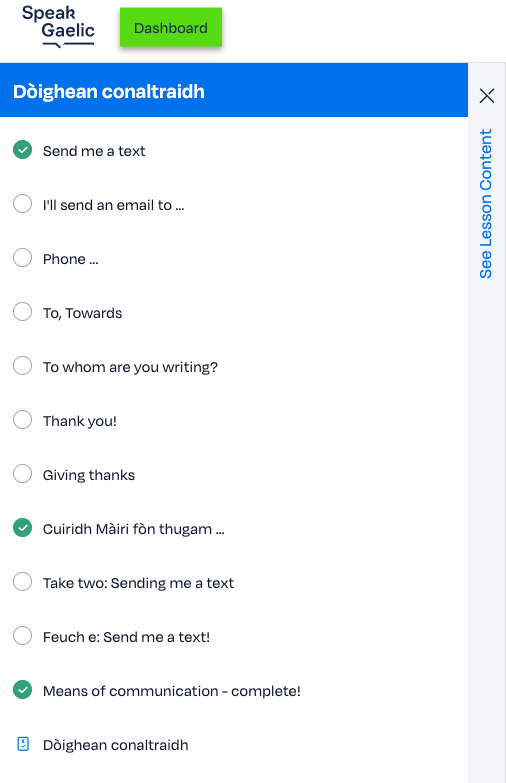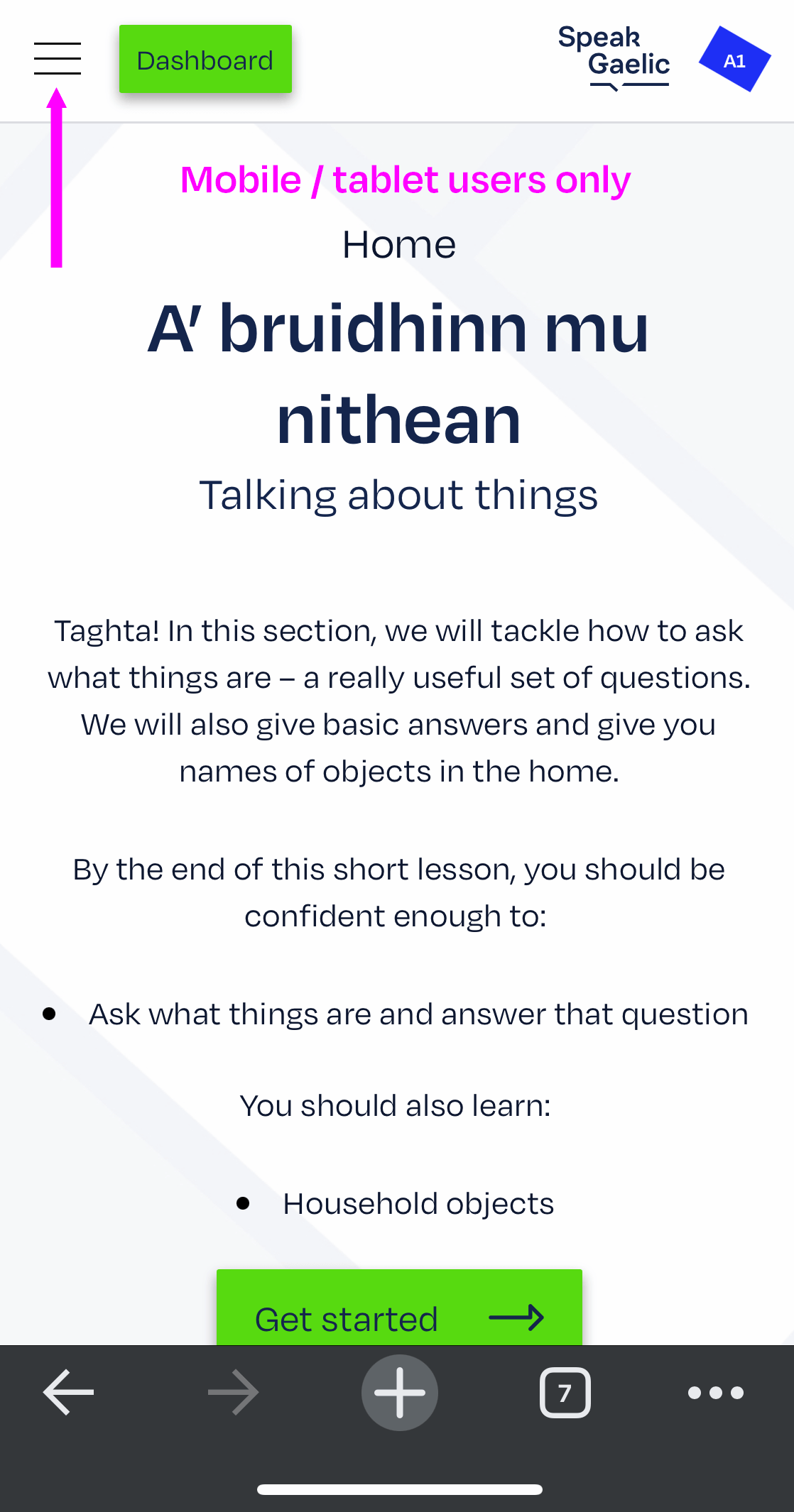a | na | nach
a | na | nach
We use relative pronouns, ‘who’, ‘what’, ‘which’ or ‘that’ to give more detail about a noun (or pronoun) in the form of a relative clause. In Gaelic, the relative pronouns are a, na and, for negative clauses, nach. Let’s look at them in turn.
a
We use a (who, which or that) to link a clause directly with the noun it describes:
| Seo am fear a fhuair na duaisean. | This is the man who won the prizes. |
| ‘S e sin an rud a thachair. | That’s the thing that happened. |
Seo am fear a fhuair na duaisean.
This is the man who won the prizes.
‘S e sin an rud a thachair.
That’s the thing that happened.
na
We use na (what, that which, all that) to replace the noun to which the relative clause is referring.
| An e seo uile na fhuair an duine? | Is this what / all that the man got? |
| An e seo na thachair? | Is this what happened ? |
An e seo uile na fhuair an duine?
Is this what / all that the man got?
An e seo na thachair?
Is this what happened?
nach
And finally, we use nach (who/whom/those/that … not) in the same way as a, but with a negative meaning.
| Seo am fear nach d’fhuair duais sam bith. | This is the man who didn’t win any prizes (any prize at all). |
| … an fheadhainn nach do rinn an obair dachaigh aca … | … those who did not do their homework … |
Seo am fear nach d’fhuair duais sam bith.
This is the man who didn’t win any prizes (any prize at all).
… an fheadhainn nach do rinn an obair dachaigh aca …
… those who did not do their homework …
These kinds of sentences are useful for reporting back what people said, heard and saw, and also what was done or happened in general.
Before moving on, we hope you’ll enjoy this Gaelic proverb. It has more than a little to say about what’s been seen, heard or done.
Feumaidh cuimhne mhath a bhith aig fear nam breug!
A liar needs a good memory!




